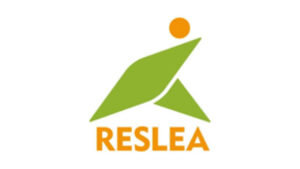
Reduction of Early School Leaving of Young People (RESLEA)
Funding information

Project duration: 02/2012 – 01/2014
Project code number: 521366-PT-KA1ECETB
Funding guideline: LLL Programme
Project concept
Initial situation
It is estimated that more than one third of all young people in Europe are not in education, employment or training ("NEET: Not in Education, Employment or Training"). Most "early school leavers" come from disadvantaged socio-economic backgrounds. However, the exact factors that lead to early school leaving and the resulting consequences on future prospects and life chances are insufficiently studied. However, initial studies show that it is associated with low-quality education, unemployment and social exclusion.
Target groups and their benefits
The RESLEA project addresses the target group of early school leavers, including teachers, experts, trainers, social partners, families, politicians and local authorities. It aims to match the supply and demand of the current education system to the young target group. This will be done by involving stakeholders more, exchanging good examples from formal and informal backgrounds from the participating partner countries and developing a quality-assured learning system for people at all stages of life.
Project goal
The RESLEA project supports the European agenda for new skills and employment opportunities and aims to limit the number of early school leavers to a maximum of 10 per cent and to increase the number of young people with higher education or vocational training to 40 per cent.
Role of ISOB
ISOB undertakes the internal evaluation for the RESLEA project and supports the partners in the development of the project philosophy and products. The evaluation aims to identify the learning effects for the participants within the project as well as for the interested public and to give recommendations for further project developments. The dissemination of the results takes place through user-oriented interim reports and final reports.
Products and publications
- Comparative report on risk identification practices and intervention strategies in partner countries
- Toolkit to improve risk identification
- Piloting with more than 500 pupils in the partner countries, evaluation of pilot experiences
- Final report of the internal evaluation
Partnerships
Partners
- Portugal (project coordination): Universidade Católica Portuguesa – CEPCEP
- Hungary: SZÁMALK Education and Information Technology Ltd.
- Slovenia: Solski center Velenje
- England: Hackney Community College, The Tavistock Institute of Human Relations
- Belgium: MENON Network
- Portugal: EPIS – Empresários para a Inclusão Social, CECOA – Centro de Formação Profissional para o Comércio e Afins
- Germany: Neue Technologien und Lernen in Europa e. V.
- Germany: Institut für sozialwissenschaftliche Beratung GmbH
The project was successfully completed and positively evaluated.
We will be happy to provide you with the project results on request. For further information, please contact our Team.
